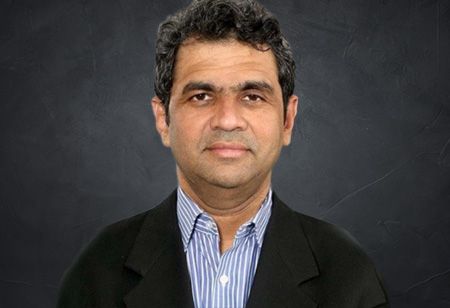Simardeep Singh Chhabra
Founder
In a country as vast and demographically complex as India, healthcare continues to be one of the most urgent and layered challenges. Despite impressive strides in biotechnology, diagnostics, and artificial intelligence, the benefits of these advances seldom reach the rural and underserved populations that form the backbone of the nation.
Infrastructure bottlenecks, linguistic diversity, limited genomic literacy, and a widening burden of non-communicable diseases (NCDs) only deepen the gap between innovation and access. To bridge this divide, India needs scalable, culturally rooted, and inclusive health technologies that address real-world conditions.
A biotechnology and bioinformatics firm, Green Genome India, is responding to this call with an ambitious and revolutionary vision. With a mission to democratize precision health and make genomic science accessible across Tier II and Tier III cities, the firm is reshaping how healthcare is delivered by bringing it out of elite labs into primary care settings, mobile health units, school screenings, and rural households.
Founded on the philosophy that healthcare should be predictive, individualized, and fair, the firm is endeavoring to indigenize sophisticated diagnostics and given human faces to health data via new, community-based modes of delivery.
A Holistic Healthtech Model
The firm has an end-to-end product offering, including early-stage research and development, clinical validation, and large-scale implementation. Its flagship innovations include saliva-based diagnostic kits tailored for rural and tribal populations, offering a non-invasive, culturally sensitive alternative to blood-based screening.
Affirming its technology is a deep commitment to education by training frontline workers such as ASHAs, ANMs, and rural lab technicians in local languages, so that they can interpret genomic data and become drivers of local health change.
What sets Green Genome apart is its systems-thinking approach and ability to operate across sectors. Crop trait mapping, soil microbiome, and veterinary pathogen surveillance initiatives are just a few examples that illustrate its dedication to the One Health approach, where a biological continuum exists between ecosystems, animals, and humans. “The inclusion of environmental information in NCD risk models shows the advanced vision of Green Genome ecosystem-based precision health, expanding the limits of what is considered conventional biotech to solve highly interconnected issues”, says Simardeep Singh Chhabra, Founder, Green Genome India.
The inclusion of environmental information in NCD risk models shows the advanced vision of Green Genome ecosystem-based precision health, expanding the limits of what is considered conventional biotech to solve highly interconnected issues
Simardeep Singh Chhabra, Founder
Empowering Scientists, Enabling Systems
In addition to technology, Green Genome cares strongly about ethical innovation. “We have developed community consent frameworks to safeguard the rights of tribal and rural populations whose genetic data is often harvested without transparency or benefit sharing,” mentions Chhabra. The firm focuses on keeping knowledge production local and democratically controlled by developing open-access genomic interpretation tools to serve government hospitals and training Indian scientists as part of joint capacity-building initiatives. It adheres to the national standards of ICMR, NABL, and CDSCO, which demonstrates its commitment to scientific integrity.
The firm is also very instrumental in the initiatives of the public sector. It is seriously engaged in collaboration with the Indian Council of Medical Research (ICMR), the Department of Biotechnology, and different state governments to take care of the national health missions and other public health interventions.
As the COVID-19 pandemic occurred, the firm played a part in genomic surveillance and assisted health departments in diagnostic rollouts and interpretation of data in the field. These collaborations are characteristic of how the firm can develop its science to benefit large populations and remain in the realm of the common good.
Building Genomic Literacy in Rural India
Central to the Green Genome model is its transformative “HealthTech-to-Hands” training program that seeks to develop a genomically literate rural workforce. By treating ANMs, GNMs, and primary care providers not as secondary users but as primary actors, the firm has reimagined rural skill-building. The program consists of courses in genomics, non-invasive sample processing, AI-based diagnostics, and introductory genetic counseling, all of which are supported by multilingual, low-bandwidth, mobile-first channels.
A “Train-the-Trainer” model ensures scalability, while planned simulation labs in district centers offer hands-on learning through real-world scenarios. The workforce empowerment model is developed to not only inform but to create professional pride, trust of the community, and sustained behavioral change.
The key to this effect-oriented paradigm is the unusual mixture of scientific rigor and human understanding demonstrated by Chhabra. He has a strong background in rural health systems as well as in next-generation genomic technologies and is known for his visits to the field and work at the grassroots level.
His advocacy of iterative design, social responsibility, and participatory innovation has contributed to the development of an organizational culture that listens before it leads. Green Genome, led by him, is not a mere startup but a movement towards bringing science to serve everyone, everywhere.
Charting the Next Frontier in Precision Health & Data Equity
Looking ahead, Green Genome India is poised to become a cornerstone of India’s precision health revolution. The firm is currently developing India’s first large-scale, saliva- and urine-based biomarker platform for early detection of cancer and NCDs. It is also building an open-access genomic registry aligned with the Ayushman Bharat Digital Health Mission, aiming to create a shared, secure, and inclusive health data infrastructure.
Future to add, the road ahead for the firm includes expanding the One Health framework in partnership with ICMR and ICAR, launching five regional training hubs, and equipping over 50,000 rural health workers across 10 states by 2027 through collaborations with nursing councils and medical colleges.
“With these ambitious steps, Green Genome India is laying the foundation for a health-sovereign, genomically empowered, and socially equitable future for all Indians”, concludes Chhabra.




.jpg)
.jpg)


, CDSCO.jpg)